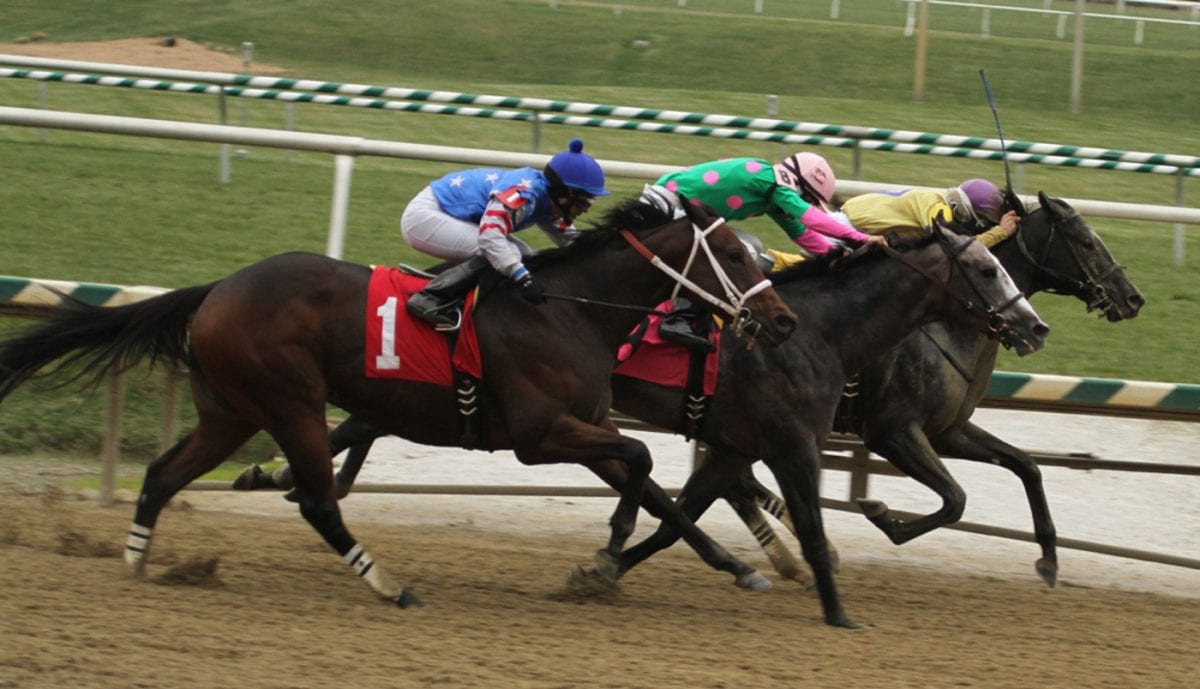In the sixth of his weekly series, Handicapping Zen, handicapper and author Bobby Zen examines the art and science of handicapping horses.
by Bobby Zen
How many times have you had a day at the track where you couldn’t do anything wrong? You win every photo, the inquiries go in your favor, the right bets are made, and so on? Conversely, you have most likely had days where it all went the other way. You get shut out at the windows on your only winning bet of the day, your 15 to 1 shot comes down on a DQ, your jockey rides into a wall of horses. Yeah, you know what I’m talking about.
[boxify cols_use =”3″ cols =”6″ position =”right” box_spacing =”5″ padding =”3″ background_color =”gray” background_opacity =”10″ border_width =”1″ border_color =”blue” border_style =”solid” height =”220″ ] SERIES SIGNPOST
SERIES SIGNPOST- LAST WEEK: Horses and trips
- TODAY: Risk tolerance
- NEXT WEEK: Money management[/boxify]
The definition of risk is “to expose to the chance of injury or loss,” while tolerance is defined as “the act or capacity of enduring.” So, understanding your own risk tolerance while gambling is a vital part of the game; it can be the difference between winning and losing as a horse player. To be clear, you must be capable of identifying potential winners at the track, as this concept has no inherent value without that piece.
There are many studies done on how we make economic decisions, or neuroeconomics as it’s called. Some basic info from these studies suggest that a money loss or gain causes physical effects on the brain and body, like sweating or increased heart rate. The neural activity of making money on investments (wagers) can mimic the effects of drugs like cocaine or morphine.
People investing in stocks or horse racing can get on a “winning streak” and begin to think they can do no wrong. Like many kinds of repeating patterns, our brain automatically expects more of the same, then our brains alarm if the pattern is broken. Money losses are processed in the same part of the brain that responds to danger, which can trigger fight or flight. How will that affect your game?
What does all this mean to the horse player? For one thing, your brain can trick you into doing things like making bets that you might not normally do. Or you might hit the panic button after a couple of bad racing breaks, and change your handicapping. What about stabbing at a crazy longshot in the last race to get even?
Here are some things that I do to help me focus on what I can control in this aspect (you can’t change the outcome on the track, but you can change how you react).
- Set realistic goals based on my own past performance
- Understand my risk levels, and how much I might make on a certain bet versus that risk
- Prepare myself with a handicapping checklist
- Realize my limitations, and stop myself from falling in afore mentioned traps
How we humans make decisions, as they relate to gambling, is also worth discussing here. That neural activity that mimics drugs is from the release of dopamine. Casinos use this angle on slot machines with bells, whistles and flashing lights. When you hit a jackpot, more bells and lights go off, causing brain neurons to fire and release dopamine. Your brain tries to decipher the pattern that caused the dopamine to release (to catch another high), but the challenge is – there is no pattern. So, you plunk in more money and chase that high, as slots are entirely random, but your emotional brain won’t want to realize that.
Enter the world of horse racing, and how we bet, as well as what happens when we win or lose. One main difference between slots and horses, is there are patterns in racing that make sense (as well as many that do not). Our interpretation of the racing past performances is where we most likely look for patterns (which has already been covered), and where we have our best chance to find the elusive value bet.
So, when we have identified a specific pattern, what we might call a betting angle that puts the odds in our favor, we have identified a good betting situation. Now, if we could just manage our money properly; well that’s the subject of next week’s article.
Bobby Zen holds an MBA and is a professional handicapper and author. His win percentage has exceeded 40 percent in each of the last five years. Learn more at www.bobbyzen.com. (Featured photo by Laurie Asseo.)







